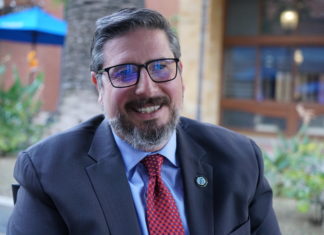By Randy Bean
CAMBRIDGE, Mass. (Forbes) — How do you address the global demand for social impact initiatives – ensuring healthy cities, creating social inclusion through community-driven innovation, and providing opportunity for early childhood development? This is the mission of MIT Solve, a global initiative of the Massachusetts Institute of Technology (MIT) that enables technology entrepreneurs to create solutions that address the most pressing global social challenges.
In a recent Boston Globe article, A World-Changing Forum at MIT, London-based freelance writer Linda Rodriguez McRobbie describes the program selection process and offers vivid examples of some of the “world changing” global initiatives that MIT Solve is enabling.
Launched in 2015, MIT Solve supports social entrepreneurs and innovators – known as “Solver teams” – from 32 countries through annual open innovation Global Challenges. Alexandra Amouyel is the executive director of MIT Solve, where she assumed responsibility in September 2016.

Amouyel brings a rich background in social impact initiatives. The Parisian-raised and Cambridge University educated Amouyel completed an advanced degree in international affairs from The London School of Economics, before serving with Save the Children International and as director of program for the Clinton Global Initiative. Amouyel speaks of needing to “bridge the innovation gap” in achieving the UN’s Sustainable Development Goals, which could serve to “decrease the unit cost of solving problems,” noting that MIT Solve functions as a marketplace to connect social entrepreneurs with resources to accelerate their impact. In May, MIT Solve hosted 33 Solver teams representing 15 countries on the MIT campus. The participants met with cross-sector leaders and mentors who helped them build partnerships to accelerate their growth and social impact.








